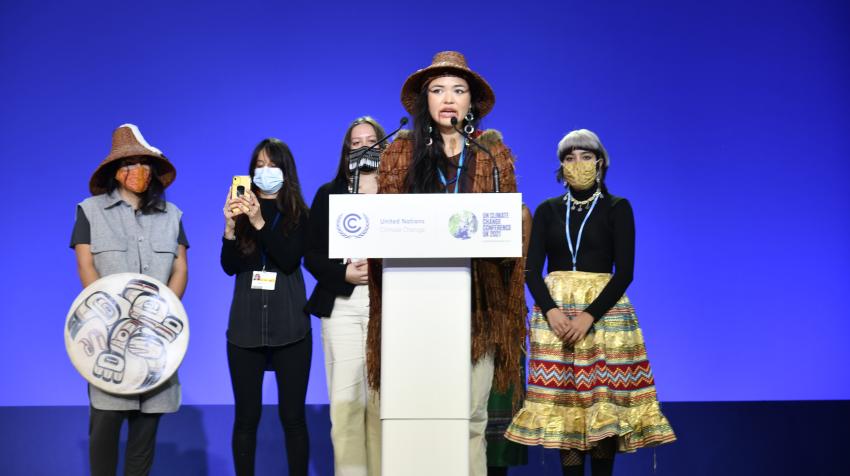Inching toward agreement
Countries were still locked in negotiations as night descended on the last official day of COP26, with all indications pointing to a long night of working out a final agreement. Earlier in the day, parties met for over three hours to discuss draft texts for the agreement. Many countries voiced general support for the proposals but stressed that various elements needed strengthening or balancing. An overriding concern was to sustain the global effort to limit global temperature rise to 1.5°C. As Frans Timmermans, lead negotiator for the European Commission, said, “We need to make sure that major emitters reduce their emissions so that we keep 1.5 alive. That has to be at the heart of our conclusions today.”
By Friday evening, considerable differences remained around financing, ambition required to keep to 1.5°C, adaptation, loss and damage, and carbon market mechanisms.
The people take charge
A People’s Plenary saw representatives of indigenous peoples, youth, women, farmers and environmental NGOs running the programme, instead of the usual conference officials. Plenary participants were asked to stand if they had lost loved ones during the COVID-19 pandemic, and again if they had experienced climate impacts. Most people in the room stood.
“There is no doubt that ‘we the people’ representing all countries across the world, in our diversity, have all felt the impacts of a pandemic and a climate crisis,” said Tasneem Essop, Executive Director of CAN-International. “It is the same sections of society that bear the full burdens of these different crises.”
Representing African civil society, Mohamed Adow said they had been “locked out of the process” at COP26. “We the people demand Global North countries pay their climate debt, deliver a global goal on adaptation, address climate injustice and pay up for losses and damages.”
Jason Boberg, from the Disability Caucus, said there could be “no climate justice without disabled people”. He called for their voices to be heard, as “disabled people are left behind in climate change. This is not a metaphor. When climate disasters hit, disabled people are literally left behind to die.”
Representatives of the UN Climate Change Youth Constituency said they had sent their largest youth delegation yet to COP26. “We are helping to design a better future, and through our voices we are changing hearts and minds across the world. We are the future, let the future speak for itself,” said Chandelle O’Neil.
The delegates marched in procession out of the COP26 venue, chanting “power to the people!” and “What do we want? Climate Justice! When do we want it? Now!”

